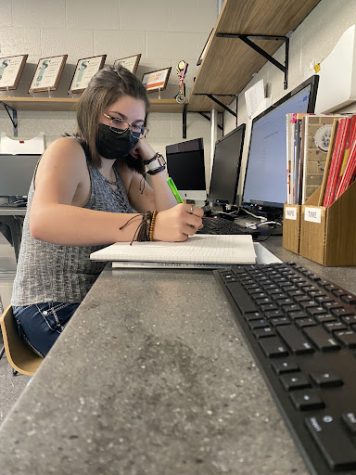Take a step. We need you.
This school is full of likable people.
Yet, we tend to emphasize the negative, even when there is so much positive.
It seems hard to find peers who are truly charismatic without them having to step out of their comfort zones. If students today were around more genuine adults and friends, our society and schools would be more encouraging.
So, take a step. We need you.
Genuine students want to influence other schoolmates and show leadership, naturally. They have traits such as strength of character, confidence and bravery. And, these attributes can help them as they mature into adults.
“In tough times, people want more in a leader than intelligence, integrity or the ability to build really tall walls,” science writer Matthew Hutson wrote for The Atlantic. “They want someone who can make a compelling pitch and inspire a sense of urgency–someone with charisma.”
Being charismatic, an individual naturally sparks powerful emotions in the peers around them. Someone who is full of charisma is engaging; they know what to talk about and when.
Therefore, other people will enjoy talking to them because they genuinely care about what they have to say. This causes a boost in confidence for everyone else as well, which is known as emotional contagion.
Look around and you will see lots of students do not believe in themselves.
However, charismatic people strongly believe in their own abilities, knowledge and worth. In other words, they inspire confidence. They are comfortable enough to be themselves, which makes it easier for others to approach them. If we students push ourselves to be more outgoing, we would truly benefit the lives of our friends. So, let’s help each other.
Charismatic role models do not disparage the people around them. In fact, they empathetically connect and focus all of their energy on whomever they are talking to. They not only hear, but see and feel the information and energy that another student shares, which shows to the other person that what they have to say is very much important to someone.
Students who are not true to themselves, playing a part for everyone else, have a harder time finding faithful relationships. In general, teens are more likely to trust a genuine person rather than someone who seems fake on the inside.
On the plus side, the emotional contagion theory proves that teens who naturally give off an upbeat and enthusiastic vibe tend to make others feel that same way when they are around.
“Charisma is not just something you’re born with,” Hutson said. “You can actually practice it, and become better at it.” He thinks it is not that hard to strengthen this skill.
“There are certain techniques or tools, like using gestures, hearing your tone of voice, then verbal things such as using metaphors, expressing moral conviction, setting high goals for your group and having confidence that your group can reach those goals,” Hutson said.










